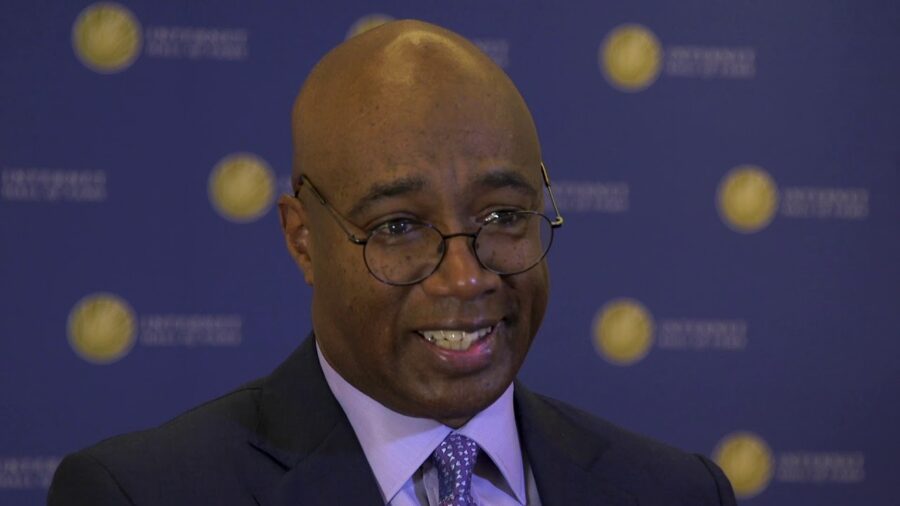Intertitle: What are your hopes for the future Internet? Your fears? What action should be taken now for the best future?
Larry Irving: You know, I have a lot of fears about the Internet. I fear the loss of privacy. It is still seen by far too many people as the domain of other than minorities, of other than women, of other than poor people, and it’s got to be about all of us. I fear that it is becoming a pay-to-play ethic, and the thing you’re going to be having to pay with is your privacy. I dislike that a lot of companies say, “Hey, we’ll give you free Internet, and all you have to do is let us know everything about you that we’re going to sell to some third party.” That’s the main fear.
I have a fear that things like 5G are going to become a major problem because they can exacerbate the divide. Now people are beginning to be minimally connected, but if you have redlining, discrimination, if we don’t invest in every community, the haves will have even more, and have-nots get further behind globally.
I fear that the term that I helped made become famous, “digital divide,” has become politicized. This particular FCC now uses it to mean only rural. There are 5 million American households that are rural housesholds that have broadband Internet. There are 15 million American urban households that don’t have Internet. Yet all the focus at the FCC seems to be on those 5 million rural, and not on those urban and suburban 15 million. That’s fearful— I don’t want to politicize the digital divide, I want every American, every person on this planet.
I fear that we have 4 billion people—so we’re halfway through the job, and that people think the job is done. No, there are 4 billion people who aren’t connected. Let’s figure out ways to economically, efficiently, and smartly connect those people.
Fear about all of those things, and I don’t know that there are enough people thinking about ’em and working hard every day to get the work done we need to do—and to pull out the politics. This is about humans. This is about making people healthier. It’s about making people smarter. It’s about keeping our social fabric. It’s about not destroying our democracies around the country by using the Internet for nefarious purposes. You know, there are days I wake up and I read the news about what’s happening with the Internet, and some pervasively, ugly practices, and I wonder was I right to try to bridge this digital divide.
I know I was, but you have to worry when you see some of the things that happen with— You know, the bullying that happens online. I mean I don’t want some poor kid, whether he’s a minority, or she’s trans, or…whatever, or they’re poor, or they don’t have the right clothing, to be pulled down.
But here’s what’s great about it. Every time I read a story that’s bad I see another story about people lifting up other people to the Internet. There was a story a couple of weeks ago but a Tennessee boy who didn’t have the right clothes and kids were teasing him. He happened be white. Two black kids gave their clothes to him so he’d look good— That story went online, and then thousands of people donated money and clothes for other kids like him and he started a little movement so that kids won’t be teased and bullied on clothing. That’s the Internet at its best.
So I have all these worries, but I’m one of those always optimistic people. That there’s nothing wrong with the Internet that can’t be fixed by what’s right with Amer— You know, I’m paraphrasing the old adage that there’s nothing wrong with America that can’t be fixed by what’s right with America. There’s nothing wrong with the Internet that can be fixed by what’s right with the Internet. It’s up to us, the keepers of the flame, people who care about this, to make sure that that happens.
Further Reference
Internet Hall of Fame profile
